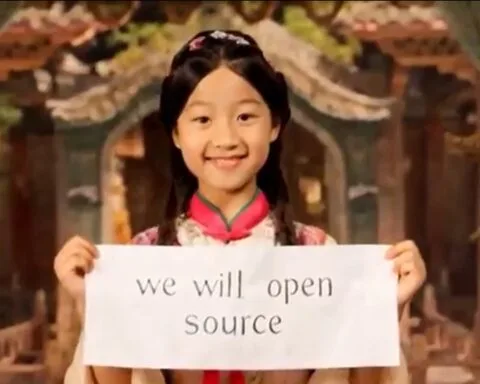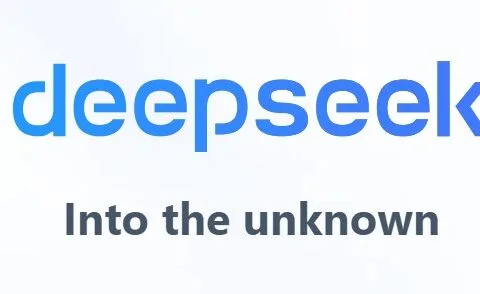Last Updated on January 31, 2024 11:50 am by Laszlo Szabo / NowadAIs | Published on January 31, 2024 by Juhasz “the Mage” Gabor
Italy to ban ChatGPT again? OpenAI versus Italian DPA – Key Notes:
- Data Privacy Violation Allegations: ChatGPT under investigation in Italy for breaching GDPR.
- User Data Collection Concerns: Scrutiny over the mass collection and usage of user data.
- Age Verification Issues: Potential exposure of minors to inappropriate AI-generated content.
- Regulatory Implications: Compliance with GDPR is crucial for AI companies operating in the EU.
- OpenAI’s Response: OpenAI asserts alignment with GDPR, emphasizing commitment to data privacy.
Violation of data protection rules in Italy?
ChatGPT, the AI-powered chatbot developed by OpenAI, has come under scrutiny for allegedly breaching data protection rules in Italy.
The Italian Data Protection Authority (DPA) has conducted an inquiry and found violations related to data collection and age protections.
The Allegations Against OpenAI’s ChatGPT
The Italian DPA’s investigation revealed that ChatGPT relies on large amounts of data from the internet to function effectively.
However, this data collection process has raised concerns about privacy violations, the DPA specifically highlighted issues related to the mass collection of users’ data, which is then used to train the algorithm.
Furthermore, the watchdog expressed apprehension (here is the investigation in English) regarding the potential exposure of younger users to inappropriate content generated by the chatbot.
This concern underscores the need for age verification systems and measures to protect vulnerable demographics.
Italy’s Stance on Data Protection

Italy has taken a firm stance on data protection, becoming the first Western country to block ChatGPT in March 2023 due to privacy concerns.
Following this ban, OpenAI reinstated the chatbot after addressing the issues raised by the DPA. However, the recent findings of the DPA’s fact-finding activity suggest that data privacy violations persist.
The DPA’s Conclusions and Possible Consequences
After reviewing the available evidence, the Italian DPA concluded that there were breaches of the provisions outlined in the EU General Data Protection Regulation (GDPR). These breaches pertain to the mass collection of users’ data for training the ChatGPT algorithm.
Under the GDPR, companies that violate data protection rules can face fines of up to 4% of their global turnover.
OpenAI now has 30 days to respond to the allegations and present its defense. The outcome of this case will have significant implications for both OpenAI and the broader AI industry.
OpenAI’s Response and Commitment to Data Privacy
The creator of ChatGPT has stated that it believes its practices align with GDPR and other privacy laws. The company emphasizes its commitment to protecting people’s data and privacy by actively working to reduce personal data in training its systems.
OpenAI has stated,
“We believe our practices align with GDPR and other privacy laws, and we take additional steps to protect people’s data and privacy. We want our AI to learn about the world, not about private individuals. We actively work to reduce personal data in training our systems like ChatGPT, which also rejects requests for private or sensitive information about people. We plan to continue to work constructively with the Garante.”
OpenAI has previously fulfilled the conditions set by the Italian DPA to lift the ban on ChatGPT. However, the recent allegations suggest that further measures may be necessary to ensure compliance with data privacy regulations.
Regulatory Scrutiny and Industry Impact
The case of ChatGPT’s alleged data privacy violations in Italy highlights the increasing scrutiny faced by generative AI systems. Regulators on both sides of the Atlantic are closely examining the relationships between AI startups and tech giants that support them.
In the United States, the Federal Trade Commission (FTC) has opened an inquiry into the relationships between OpenAI, Anthropic, and their major investors, including Amazon, Google, and Microsoft.
Similarly, competition regulators in the European Union and Britain are examining Microsoft’s investments in OpenAI:
“Virtual worlds and generative AI are rapidly developing. It is fundamental that these new markets stay competitive, and that nothing stands in the way of businesses growing and providing the best and most innovative products to consumers. We are inviting businesses and experts to tell us about any competition issues that they may perceive in these industries, whilst also closely monitoring AI partnerships to ensure they do not unduly distort market dynamics.”
said Margrethe Vestager, Executive Vice-President in charge of competition policy.
The broader AI industry is also facing regulatory oversight in the EU, as the bloc finalizes the groundbreaking AI Act, the first comprehensive rulebook for artificial intelligence.
This legislation aims to establish a clear framework for the ethical and responsible use of AI technology.
Implications for the Future of AI and Data Privacy
The allegations against ChatGPT serve as a reminder that as AI technology advances, data privacy concerns must be addressed proactively.
Striking a balance between innovation and safeguarding user privacy is crucial for the continued development and acceptance of AI applications.
Companies like OpenAI must invest in robust data protection measures, including age verification systems, to ensure that AI-powered tools like ChatGPT do not expose vulnerable users to inappropriate content.
Compliance with data privacy regulations not only protects individuals but also fosters trust in AI technology as a whole.
Conclusion
The allegations of data privacy violations against ChatGPT in Italy have brought the issue of AI and data protection to the forefront.
OpenAI’s response to the accusations and the subsequent actions taken by regulators will shape the future landscape of AI technology and data privacy regulations.
Disclaimer: This article is for informational purposes only and should not be considered legal or professional advice.
Italy to ban ChatGPT again? OpenAI versus Italian DPA – Frequently Asked Questions:
- What is the issue with ChatGPT in Italy?
The Italian Data Protection Authority is investigating ChatGPT for possible data privacy violations under EU GDPR.
- What are the concerns raised by the Italian DPA?
Concerns include the mass collection of user data and exposure of minors to inappropriate content.
- Has Italy taken any action against ChatGPT?
Yes, Italy had previously banned ChatGPT due to privacy concerns, although the ban was later lifted.
- What does this mean for OpenAI?
OpenAI must address these allegations and ensure compliance with GDPR to continue operating in EU countries.
- How does this impact AI technology and data privacy?
This situation highlights the need for AI technologies like ChatGPT to balance innovation with robust data protection measures.











